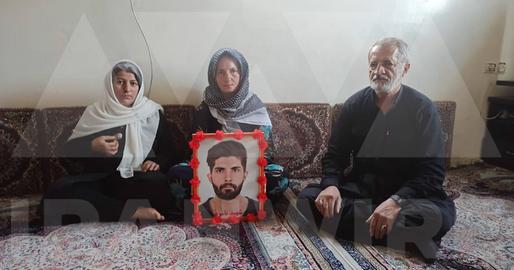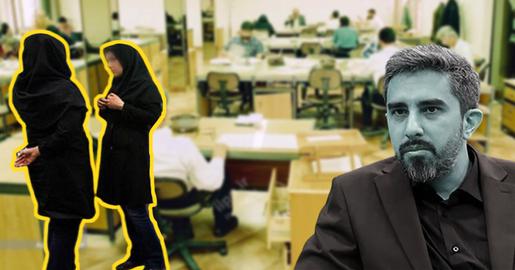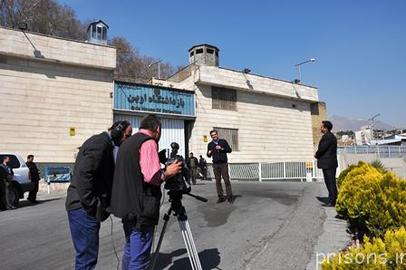As the settlement agreement in southern Syria passes its two-year anniversary, killings and ongoing security chaos continue in the southern province of Daraa. Witnesses say Iranian militias have a hand in the violence.
Targeted attacks on opposition groups and civilians happen on a daily basis, with at least one person being assassinated each day. Everyone, from the Syrian government to Russian forces, Iranian militias, opposition groups and civilians, feel the impact.
According to the local opposition media organization the Free Houran Group, between July 2018, when the settlement agreement was signed, and July 2020 there have been nearly 415 assassination operations, resulting in the death of 314 people.
These numbers do not include operations against Syrian regime forces at checkpoints, headquarters, or barracks, which have been repeatedly targeted over the last two years, the Free Houran Group reports.
Assassinations Escalate
Data obtained by IranWire shows a significant increase in assassinations over the last six months. There were 256 killings and attempted killings between July 2018 and December 2019, whereas, from January to July 2020, there were 189 attempts or deaths. This means the percentage of assassination operations and attempted assassinations during the last six months represents 42.5 percent of all attacks, compared to 57.5 percent accounting for the first year and a half following the settlement.
The number of victims over the last six months reached nearly 146, representing 46.5 percent of the total number, compared to 168 victims during the first year and a half following the settlement, which is equivalent to 53.5 percent of the total number over the last two years.
Abu Muhammad, a member of the Central Committee in Daraa, a civil society group that conducts negotiations with the Syrian regime and the Russian guarantor of the settlement agreement, attributes the increase in operations to what he described as "the Syrian regime's policy in dealing with the situation in Daraa governorate."
In an interview with IranWire, he explained that "the appointment of Major General Hussam Luqa as head of the security committee in Daraa governorate is the main reason for the increase we are witnessing, and it continues to rise."
Last November, Syrian president Bashar al-Assad appointed Major General Hussam Luqa as head of the General Security Directorate in southern Syria, introducing a shift in the way the government dealt with security there.
New Assassination Methods
The Syrian regime has primarily used firearms and improvised explosive devices to carry out killings, and kidnappings have also been routine. But now, the regime has adopted new tactics, including using toxic and poisonous substances against its opponents.
Mufleh al-Kanani, a former opposition leader and member of the Central Committee in western Daraa governorate, said when the Fourth Division's security bureau targeted him, they used poison stored in a juice bottle as part of their weaponry. The security unit is led by Maher al-Assad, Bashar al-Assad's brother.
Several hours after the attack against him, al-Kinani was taken to al-Assad University Hospital in Damascus after experiencing severe stomach pains that later spread to his entire body as a result of the "lethal arsenic" substance. Medical staff had to perform four blood transfusions, and doctors later instructed him to continue further treatment at home.
The poison struck al-Kinani's nervous system, leading to complete paralysis, hair loss, reduced vision, and difficulty speaking. He told IranWire via WhatsApp: "I still suffer to this day from the effects of the poison."
According to al-Kinani, he had been targeted because he had opposed regime forces' deployment in the region, amounting to a violation of the settlement agreement signed in July 2018. The Syrian regime, he says, seeks to "eliminate actors in the region, so that any revolutionary ideology or sentiment against the al-Assad regime and its militias in the region will be eradicated, especially those who have found support among the youth and former fighters."
From his new residence in Erbil, Iraq, Al-Kinani accused Damascus of seeking to "disperse and break up the revolutionaries by assassinating their leaders and deploying their members to the fronts in northern Syria."
In a similar incident, a former leader of the opposition, Yamen Manajara, was also the subject of an assassination attempt. While he was at the Fourth Division's security office in December 2019, he was injected with a toxic substance which led to what he described as "semi-permanent neuropathy."
Iran’s Involvement
IranWire spoke to a former military leader for the opposition in Daraa governorate going by the pseudonym Abu Mahmoud. Following the reconciliation agreement in July 2018, he says he refused to join any military formation or militia. Since then, Abu Mahmoud has devoted his time to his homelife and agricultural work, removing himself from all political and military matters, he told IranWire.
"I discovered the regime forces and its security branches are recruiting in order to kill us off. I found an explosive device on the road to my farm, but it did not explode, thanks be to God,” he said. "This, however, made me very careful."
Shortly after the incident, one of Abu Mahmoud's friends arrived carrying a silencer gun and a Russian Zakharov rifle. He told him he had been assigned by the Syrian Air Force Intelligence to kill him and another person in exchange for close to $500 for each mission "in order to ensure his own safety and guarantee that he would not be prosecuted."
Abu Mahmoud continued: "My friend escaped at night through the orchards and came to my town. He brought his family with him and settled there. However, a month after this incident he was shot dead by unknown individuals after leaving evening prayers." He added: "The assassinations continue because of the weak souls that give up their beliefs in exchange for a few crumbs from the occupiers."
A negotiating member of the Central Committee in Daraa accused Iran’s Revolutionary Guards of being behind the operations "through their agents and militias in the region such as the Fourth Division, the Air Force Intelligence, Lebanese Hezbollah, and national committees such as the Golan Regiment in Khan Arnabeh in the al-Quneitra area, and the 313th Regiment in Daraa — a local militia from Daraa supported by the Iranian Revolutionary Guards."
The Fourth Division, the Syrian Air Force Intelligence, and the Fifteenth Special Forces Division, along with other Syrian security and military agencies, are known as the "Iranian Trend" within the Syrian regime, which works to implement Iran's agenda and interests in Syria.
Speaking to IranWire on condition of anonymity, the negotiator confirmed that "the targets are identified by Iran and its militias, and then individuals from among the region's residents are assigned to monitor and kill them." He added: "The assassinations are carried out in several ways, the most common of which is direct killing by shooting or planting explosive devices, in exchange for which they receive money or personal privileges, such as a security card that allows holders to move through the regime's military and security barriers."
In another incident, Sheikh Alaa Al-Zoubani, 42, was killed with a silencer gun after evening prayers on February 25, 2019 at the Al-Yadouda town mosque west of Daraa.
In the years preceding the settlement when Syrian opposition factions were in control, Al-Zoubani was known for his work as a judge at the opposition's House of Justice Court in Houran. Following the settlement, he became well known for his opposition to Iran’s influence in the region, using his Friday prayer sermons to warn of the Islamic Republic's incursion into southern Syria. The Syrian government's Daraa Islamic Endowment Directorate put a stop to his sermons.
In late May, more than a year on from Al-Zoubani's death, activists from Daraa shared a video of Raafat Al-Nahas, a member of the settlement factions, admitting his involvement in several assassination operations for the Air Force Intelligence, including the assassination of Al-Zoubani.
Al-Nahas was found dead in mid-March on the roadside west of Daraa.
IranWire was not able to identify the source of the video, but it is believed that the people who arrested Al-Nahas recorded his confession before killing him.
Impact and Repercussions of Assassinations
"The assassinations and the security chaos have caused fear among a large section of Daraa's residents,” Abu Muhammad, the member of the Central Committee in Daraa IranWire talked to, said. “It led to many young people leaving the region via illegal routes toward Lebanon and opposition areas in northern Syria – that and the huge deterioration in the local economy." Abu Muhammad also pointed to Russian involvement, saying that the Russian interest was “limited to merely containing escalations and rapid developments."
"Instability will prevail as long as the regime does not change its policy in dealing with its opponents,” he said.

























comments